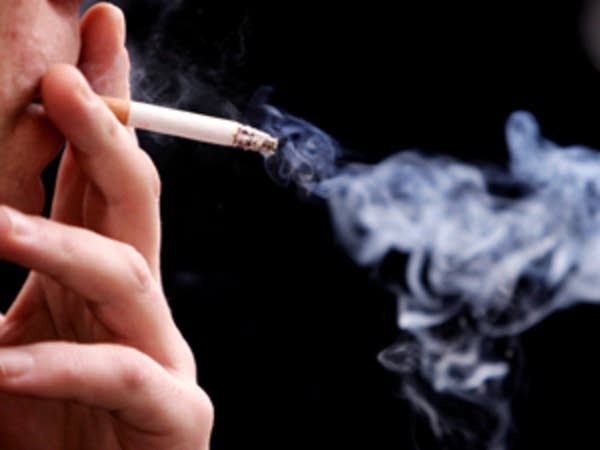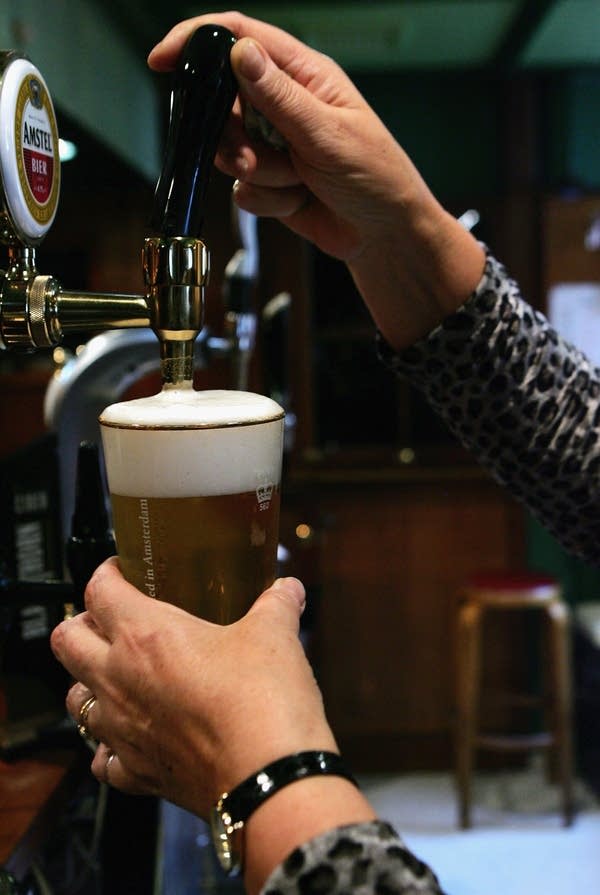House DFLers: State 'can't afford' some current tax breaks
Go Deeper.
Create an account or log in to save stories.
Like this?
Thanks for liking this story! We have added it to a list of your favorite stories.
[image]
For the chair of the House Tax Committee, the state's projected $4.6 billion deficit provides a rare opportunity for reform in government.
Rep. Ann Lenczewski, DFL-Bloomington, says the House tax bill would make the tax code fairer and deliver the most significant reform in 20 years.
"This bill shrinks government by removing permanently a number of tax preferences in the tax code," she said. "It also attempts to ensure those that we think are worthy are means-tested, and returned to folks who need it most. We're in a tough time and we just plain old can't afford to continue to provide some of these tax preferences."
Turn Up Your Support
MPR News helps you turn down the noise and build shared understanding. Turn up your support for this public resource and keep trusted journalism accessible to all.

The bill raises $1.5 billion in new revenue. It eliminates dozens of existing business subsidies and other tax expenditures, including Gov. Tim Pawlenty's signature economic development initiative known as Job Opportunity Building Zones, or JOBZ.
It also creates a new income tax rate of 9 percent for couples making more than $300,000 a year. Lenczewski says those changes raise the bulk of the new revenue.
Lower-income Minnesotans would actually see an income tax cut under the bill. But the measure also hikes the excise tax on cigarettes by 54 cents a pack, and adds 1 to 3 cents to the cost of a drink through the alcohol tax.
Lenczewski says alcohol abuse costs the state billions, and the alcohol tax hasn't changed since the 1980s.
"It has not been raised in 22 years. Most of our major taxes are more regressive than this. And we thought this was the time in this crisis to begin to have that tax adjusted to recoup some of its government cost," said Lenczewski.
"This is really one of the most outrageous tax bills we've seen around the Capitol in a long time."
The bill does not expand the sales tax to clothing or professional services. But the sales tax would apply to the purchase of goods on the Internet, as well as the digital downloads of music, books and video.
Under another section of the bill, counties could impose a half-cent sales tax, although local residents could later petition for a vote to repeal the tax.
Rep. Paul Marquart, DFL-Dilworth, says the sales tax option would help save county jobs and continue public services.
"We can give counties a stable source of revenue that would not be subject to unallotment or other types of cuts, and increased flexibility into the future," he said.
House Republicans says they're disappointed but not surprised by the DFL tax bill.
Rep. Laura Brod, R-New Prague, says the repeal of JOBZ sends a bad message to business and would break promises made to participating employers. Brod says the the increases in income, sales and sin taxes would have a statewide impact.

"It impacts hard-working Minnesotans on main streets throughout the entire state of Minnesota in a way that is unsustainable, in a way that hurts their families, and in a way that does not set us up well to recover economically," said Brod. "It's a difficult bill. It's a difficult discussion. But we need to be real about who it impacts, and that's every single Minnesotan in the state."
Brod and other House Republicans say they'll stand united to sustain the veto they predict Gov. Pawlenty will issue when a tax bill lands on his desk.
The Republican governor is opposed to any tax increases, and Pawlenty's spokesman Brian McClung says the House bill goes way overboard.
"This is really the Democrats bringing Minnesotans death by a thousand taxes," said McClung. "They want to raise income taxes. They want to raise taxes on a beer. They want to take away the deduction if you have kids in child care. They want to take away the deduction if you donate an organ. This is really one of the most outrageous tax bills we've seen around the Capitol in a long time."
Senate Democrats will unveil a separate tax bill this week that would raise more than $2 billion in new revenue.
Senate Tax Chair Tom Bakk, DFL-Cook, says the bill will differ significantly from the House plan. He says the income tax increase will impact more than just the wealthiest earners, and cigarette and alcohol taxes will not be touched in the Senate bill. Bakk also doesn't like the county sales tax option.


